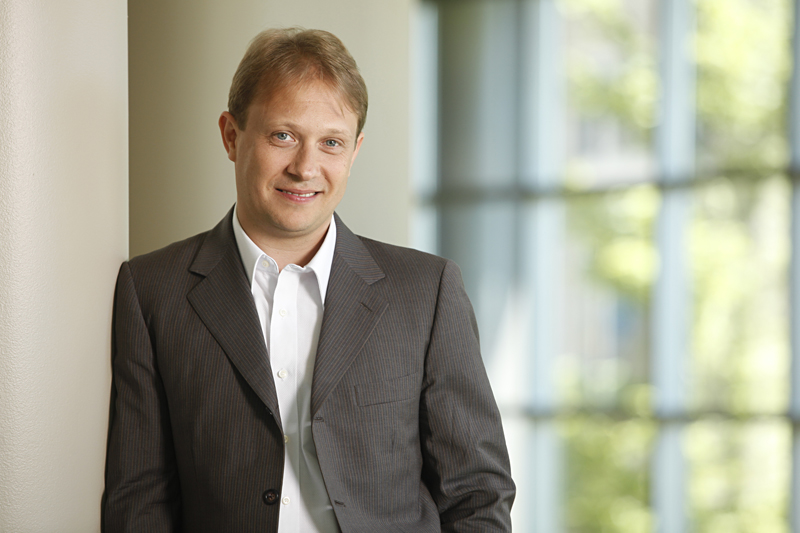On the Seattle Symphony’s master list of repertory for the 2011–12 season, there are nine works by masterful French colorist Henri Dutilleux, who turned 95 on Saturday and is still active.
There are only seven by Beethoven, who’s been dead for centuries. Do you sense a pattern?
Announced last week, the first season under the SSO’s new music director, Ludovic Morlot, came as pleasant a shock as—well, as this year’s commissioning project, the 18 brand-new works honoring Gerard Schwarz’s current final season, which wraps up in June. For next year, the 37-year-old Morlot has devised a mouth-watering, near-perfect mix of old and new, novel and familiar, with 19th-century works treated not as the status-quo default repertory but carefully set alongside newer works, in fresh contexts that should enhance their impact. From the 20th century, favorites are balanced by envelope-pushers: Rachmaninoff and Carter, Sibelius and Varèse, Shostakovich and Ligeti. Similarly, among living composers, recognized masters (John Adams, Bernard Rands) share space with a younger generation (hot-buzz genre-crosser Nico Muhly, working on a commission to be premiered here, and Michael Hersch).
Balance is the operative concept. 1900, after all, is already as remote from today as it was from Mozart. What Morlot and Elena Dubinets, vice-president of artistic planning and new-music advisor, realize is that the date marks roughly the midpoint of the timeline of music for standard orchestra—high noon, not, as most ensembles treat it, the onset of night. Credit is due also to Schwarz, who’ll return next May for a festival of contemporary American music: four concerts featuring a dozen or so living composers.
When the French-born Morlot visited Seattle last July for the first time after his directorship was announced, I had a chance to ask him about, among other things, his interest in new music. Here’s a look at the philosophies behind next season’s rich and daring lineup:
SW: I know you’re doing a lot of contemporary music this summer—especially at [New York City’s] Mostly Mozart festival, which is an interesting place for it.
Morlot: I think as a young artist, it’s a mission and a duty to perform new music; I find it always very strange for a young artist to not really be curious about what the contemporary vocabulary might be . . . It’s taken for granted when you open a Beethoven score, the challenges are completely different. [New music] gives you that creative feeling; as a conductor, so many times, you feel just as an interpreter of the music; I think it’s very important to find that space and freedom where you can actually decide what you want to do with the music you’re reading for the first time.
I wish everybody felt that way.
It’s interesting, because then it makes me read the Beethoven scores differently. You become so accustomed to reading all the classical scores day after day—it’s really nice to have that fracture and then come back to it afresh. By challenging yourself with reading music you don’t know, it makes you look at those old scores with different eyes and different ears.
What are your other plans for new music? Are you thinking yet about what composers, what styles you’d like to explore with the orchestra? SSO’s reputation is really based on this American symphonic school, and I don’t know if that’s played a large part in your repertory so far. But I’m guessing there’s going to be a bit of a shift in what you’re into versus what Schwarz was into.
Well, I think that’s what’s so healthy about the change. I will bring contemporary voices that are more European—to start with, anyhow. I also have great curiosity in learning more about American music. As to exactly what the names will be, it’s a little premature. But I think I can tell you the format will be different. And I will try in the long term to keep incorporating some of the American repertory that has been so famously associated with the orchestra. Because as much as I believe I can offer something to the orchestra, I want to learn from them—I want to be a twofold interaction, so we can all grow together.
As a general thing, there might be a good deal of new, or newer, music: To make the classical repertory—the older, more familiar music—more interesting, in programming contrast to what people might know a little less. I’m a great advocate of, when you go the concert hall, a combination of new things and old things that makes it a wonderful experience. As an audience member, that’s what I’m looking for. I hate to go to a concert I know nothing about; I hate to go to a concert where everything is so familiar. I’m talking as a subscriber to an organization like the Seattle Symphony. It would be very interesting for me to be able to offer the audience the blockbusters, but also to kind of sharpen their ears, and make them, as much as possible, active listeners to a new language they don’t know.
Schwarz does a lot of Mahler, Shostakovich, Strauss—his real specialty is this kind of big stuff that’s about a hundred years old, and I think the audience will expect some of that.
The great thing about Mahler, that particular voice, why it’s so popular with audiences—I think it’s because it’s so schizophrenic, it’s the rhythm of our life. I don’t think Mahler has aged at all, that’s why young people love it so much. It’s still so easy to relate to.







